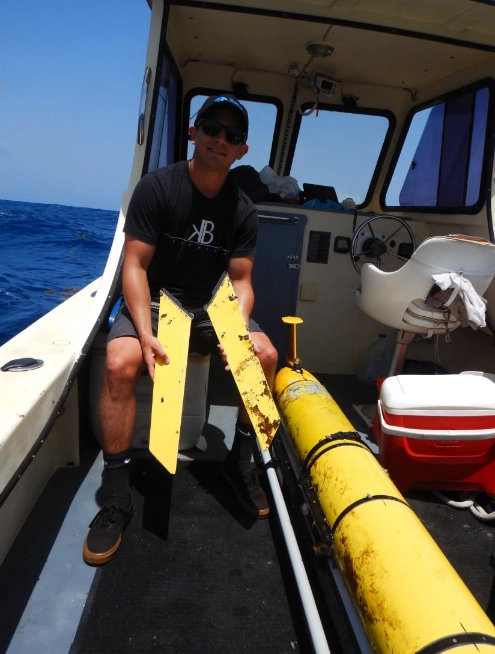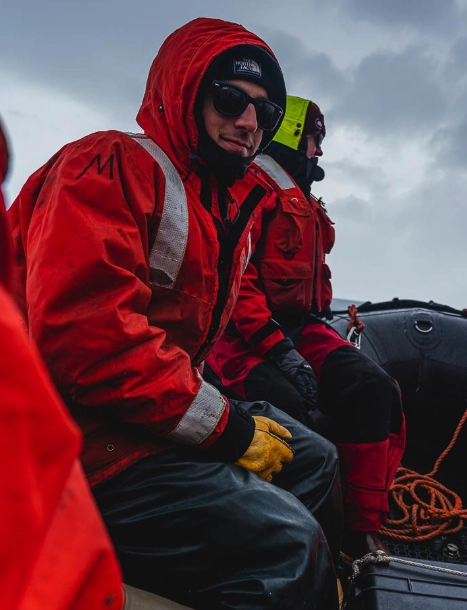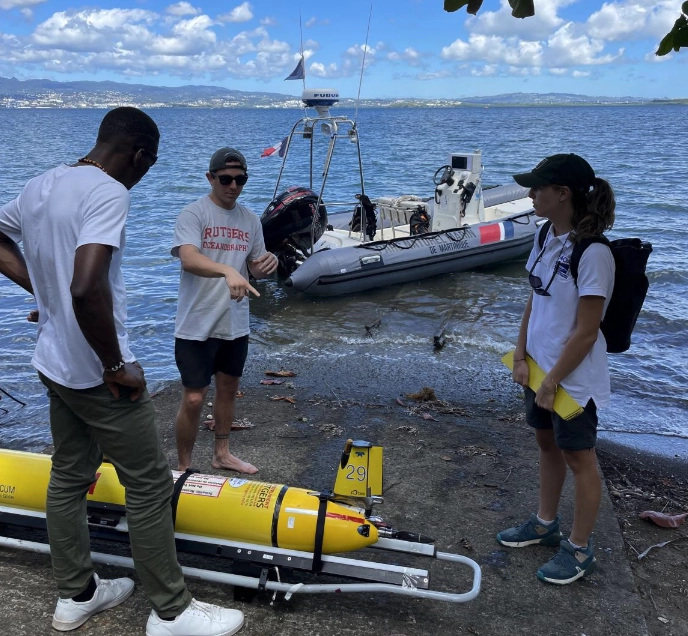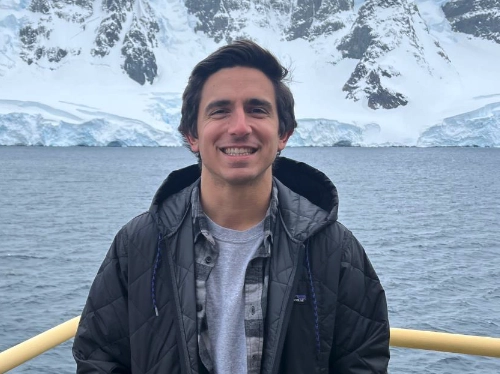Having grown up in central New Jersey (yes, it exists!), it took me moving to landlocked Colorado to discover my interest in oceanography. My initial interest in oceanography was sparked from taking a biogeochemical oceanography course that opened my eyes to the interdisciplinary nature of the field. From there, various classes, internships, and research
projects in Colorado eventually lead me to a National Science Foundation Research Internship in Ocean Sciences here at Rutgers’ Center for Ocean Observing Leadership (COOL) with Dr. Hugh Roarty. That summer, I developed fundamental data analysis skills while assessing high frequency radar data in the New York harbor through comparisons with several oceanographic data sources and models. The experience of working with HF radar data was a great introduction for how science and technology can be applied to meaningful societal issues. I was inspired by how this data was being utilized to improve the U.S. Coast Guard’s search and rescue system and NOAA’s oil and hazardous material spill responses. At the time, I did not fully appreciate how impactful this experience was going to be but after seeing the impact of research on this scale first-hand, I was motivated to work in a field with an applied focus.
After earning my BS in geology, I was accepted into a master’s program in oceanography at the University of Delaware working with Dr. Matthew Oliver in the Ocean Exploration, Biogeography, and Remote Sensing (ORB) lab. My thesis focused on utilizing satellite, in-situ, and modeled data sets to understand how high surface kinetic energy can limit phytoplankton blooms in the Southern Ocean through vertical mixing leading to light limited environments. After finishing my thesis, my attraction to the applied side of science throughout graduate school led me to look towards jobs in industry. I quickly found a position at Teledyne Webb Research as a Customer Support Applications Engineer because of my knowledge of autonomous underwater vehicles and my interdisciplinary science background. I was primarily involved with testing and developing new Slocum glider software features while also supporting customers via remote field campaigns and technical trainings.

Although my time in industry had been valuable and fulfilling, I found myself yearning for a level of science and research that could only be found in academia. This perspective fueled my desire to pursue a PhD an led me back to the COOL group here at Rutgers that helped spark my original interest in oceanography. I am currently in the 4th year of my PhD and working with Dr. Travis Miles where my research focuses on understanding ocean circulation and the transport of heat and salt within the Atlantic Ocean. I am specifically focusing on Caribbean Sea as the oceanic conditions here have profound broader impacts, driving tropical cyclone generation and rapid intensification as well as sea level rise, both which are increasingly devastating coastal communities.

I still heavily use gliders but have also expanded to a variety of other data sources as well as ocean models to answer my research questions. I enjoy how my day-to-day can vary from coding problems and being hands on with gliders to teaching and outreach. I am also passionate about the marine technology community considering how this niche field has impacted my career path. I am presently the Chair of the Marine Technology Society’s New Jersey Student Section and I am on the Underwater Glider User Group (UG2) Steering Committee. When I’m not working on my PhD I enjoy cooking, being outdoors, and spending time with my family and dog.


